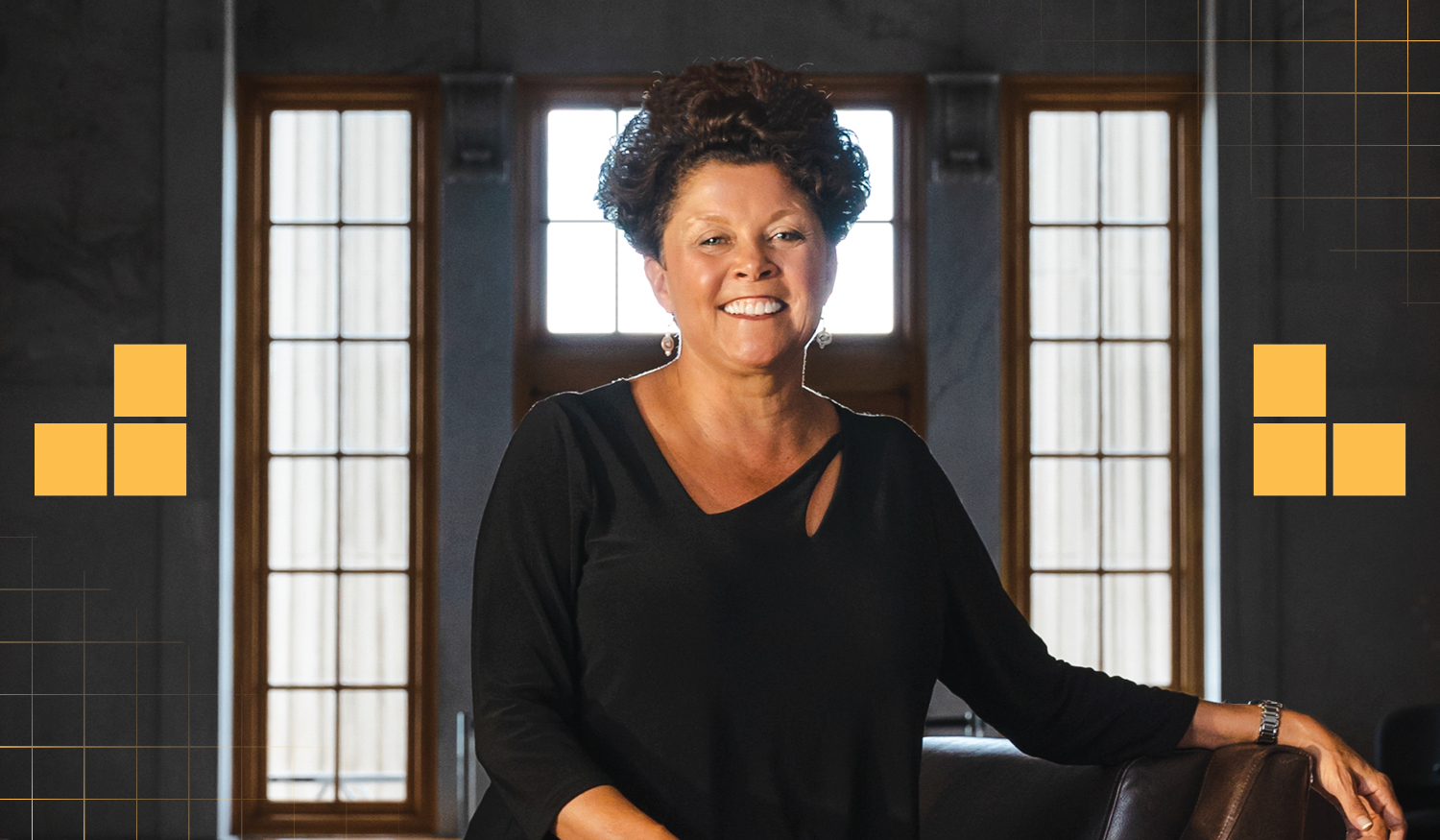

By Dr. Dion Clark
Asking Marie Williams what her typical day looks like gets you a big laugh and a bit of good-natured teasing.
“A day in the life?” she asked. “No two days are the same!”
One day the air conditioners break down, which means finding a way to transfer dozens of patients to cooler facilities across the state; the next day, she works with her team to analyze budgets and data to advocate for clients. The next involves hearing from and collaborating with behavioral health care providers. On still other days, she shares data and testimonials with legislators and budget staff to ensure they know the value of her agency’s work. For Tennessee’s commissioner of Mental Health and Substance Abuse Services and the CSG Justice Center advisory board chair, every day is an adventure.
Williams was appointed commissioner by Gov. Bill Haslam in 2016 and reappointed by Gov. Bill Lee in 2019. Before helming the state’s entire mental health apparatus, Williams spent 25 years working with people experiencing mental health crises, addiction and homelessness, working her way up from caseworker to the state’s highest-ranking mental health professional.
“I’m grateful that I’ve never burned out,” she said.
For Commissioner Williams, the work is personal. Her own mother experienced addiction for the first eight years of Williams’s life. As the oldest of five, Williams had to assume the role of parent early on. She found love and security during those years through her grandparents and Ms. Hayes, who was both her kindergarten and Sunday school teacher. Williams’s faith underpins her commitment to her work.
As a teenager, she read “The Cross and the Switchblade,” the best-selling biography of David Wilkerson, the Christian evangelical and street minister who founded Teen Challenge and the Times Square Church in New York City. The book tells the story of Wilkerson’s move to Brooklyn, New York, to minister to people involved in gangs. Williams remembers being so moved by the book that her father feared she would run away to New York to join Wilkerson’s street ministry.
“He took the book away!” she exclaimed with a rueful chuckle.
But Williams didn’t run off to New York. She served as the youngest youth leader at Providence Baptist Church in Crockett Mills, Tennessee, attended Dyersburg State Community College on a basketball scholarship, and then went to the University of Tennessee, where she earned her master’s degree in social work. Williams was attending a dinner service at her church when a guest speaker talked at length about a local homelessness program. After the talk, she offered to volunteer; the speaker hired her on the spot.
“It was my calling,” she said.
When you ask Commissioner Williams what she’s proudest of, she’ll point you to the team of public servants she’s assembled and the relationships they’ve created with providers, consumer and family advocacy groups, other state agencies and state leaders. On the program side, it’s the Creating Homes Initiative. Operated through the Mental Health and Substance Abuse Services department, the Creating Homes Initiative started with a modest $2.5 million state investment more than 20 years ago. Since then, it’s leveraged nearly $850 million in state, federal, local, foundation and community funds to provide “quality, safe, affordable, and permanent housing options” for nearly 30,000 Tennesseans with mental illnesses, substance use disorders and co-occurring disorders.
Williams won’t say she started the initiative — taking credit is not her style. But she will say the inspiration for it. As a caseworker, one of her first clients was a mother experiencing homelessness and addiction whose kids were in foster care. Williams helped her get Social Security, the proper medication and a job — the only thing missing was housing.
She remembers driving the client to the housing she’d eventually secured for her. She also remembers the disappointment she felt when they arrived. Although the client was grateful to have a roof over her head, the house was in severe disrepair. Williams thought there had to be a way to provide better housing solutions for the clients she served. Her vision for the Creating Homes Initiative was conceived in that moment, though it would take a few years to make it a reality.
Williams is also proud of Tennessee’s Certified Recovery Congregations initiative, whereby the state certifies faith-based organizations that provide support for individuals seeking recovery services. Williams noted that churches enthusiastically support people who are recovering from childbirth or surgery — “they bring casseroles.” The initiative teaches congregations to treat recovery from behavioral health conditions the same way rather than stigmatizing it.
In her time at the department, Williams has worked with multiple governors, state and federal legislators and presidential administrations of both parties. She is effusive in her praise of Tennessee Governors Lee and Haslam, leadership and members of the Tennessee General Assembly and the federal government’s increased efforts and funding for mental health services. Williams is heartened that there has been progress since decades ago when few people talked about mental illness.
For years, Williams has appealed to anyone who would listen that there is a pathway to recovery. As mental illness has “hit home” for legislators and community leaders, it’s caused many to come together to fund the necessary and important work of mental health services. Something else Williams is proud of is the state’s investment for people who are uninsured: approximately 40,000 Tennesseans receive mental health treatment through the state’s behavioral health safety net every year, widening the pathway to recovery for everyone.
Having an advisory board chair from a behavioral health background is new — and welcome — territory for the CSG Justice Center. Williams became chair in 2022 and is already making her presence felt behind the scenes. She is quick to say that her experience as a high school and college basketball player taught her the value of the team approach, and she takes that approach with her everywhere. CSG Justice Center Director Megan Quattlebaum is her top teammate in her new role.
“Megan is the total package,” she said. “My best advice to her is to just ‘keep on being you.’ I’m thrilled with the direction the CSG Justice Center is headed in. I feel honored to be a part of it.”
Williams says the CSG Justice Center’s mission is why she joined the advisory board in the first place. Focusing on diversion, demonstrating that people don’t have to end up in the justice system and meeting people where they are — that’s Williams’s approach to the work and why, for her, the advisory board role made perfect sense. She’s optimistic about the future of the intersection of housing supports and the criminal justice and behavioral health systems. And she unabashedly encourages young professionals to get in this work and stay in it.
“You get to go home every night knowing you made a difference.”
This article appeared in the CSG Capitol Ideas magazine (2022, Issue 4). View current and past issues at csg.org/publications/capitol-ideas.



